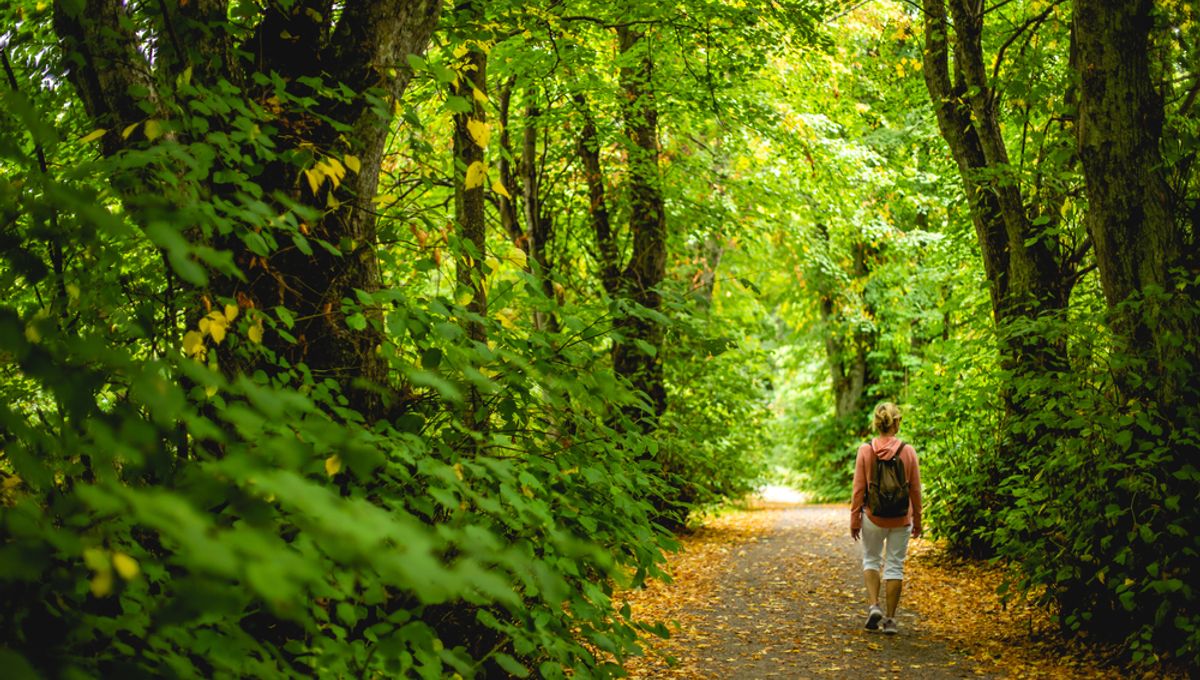
For a while now, scientists have known that taking a stroll in the great outdoors can do wonders for your mental health. However, what they didn’t know is why – until now.
A new study, published in Molecular Psychiatry, has found that a 60-minute stroll in nature results in a reduction of stress-related markers within the brain, showing some of the first causal evidence about the benefits of walking on mental health.
To understand more about the relationship, researchers from the Lise Meitner Group for Environmental Neuroscience at the Max Planck Institute for Human Development took 63 volunteers and asked them to complete either a walk in nature (a forest in this case) or a walk in an urban environment.
MRI scans were used to log brain activity before and after the walks, looking for markers of stress via activity within the amygdala. The amygdala has previously been shown to be more active in people that live in cities compared to those in the countryside, and given its important purpose in the processing of emotions and fear, it acts as an important marker for stress.
Following the nature walk, the participants showed lower amygdala activity, suggesting the walk was lowering their stress levels and could counteract urban-associated negative impacts.
“The results support the previously assumed positive relationship between nature and brain health, but this is the first study to prove the causal link. Interestingly, the brain activity after the urban walk in these regions remained stable and did not show increases, which argues against a commonly held view that urban exposure causes additional stress,” said Simone Kühn, head of the Lise Meitner Group for Environmental Neuroscience, in a statement.
The results could have an important impact on how we deal with mental health issues and even how residential areas should be designed in the future, as previous studies have shown strong links between living in cities and mental health disorders. Access to green areas could provide a barrier between the urban-associated stress and even protect against risk factors of mental health problems, should more mechanisms be uncovered.
Along with previous studies that suggest people that those who live in the countryside or have access to a forest have healthier amygdala structures, science appears to be truly screaming at you to get out into the wilderness. Just a short exposure to a natural environment could help to take away the effects of the concrete jungle, and places like Canada are already capitalizing by prescribing National Park passes for people with depression or anxiety.
So, it might be time to dust off the old walking boots and get out in the great outdoors, even if just to run back inside when you realize how cold it is.
Source Link: Spending Just One Hour In Nature Could Reduce Stress In The Brain